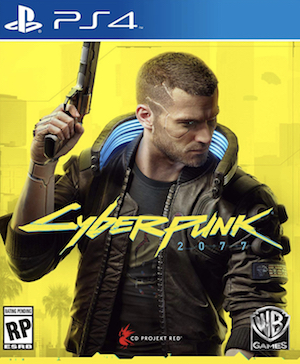As the issue of “crunch” during development has been blown wide open, how different studios deal with it has started coming to light with more and more clarity. Many of the industry’s heavyweights have come under fire for how they handle the issue, with the likes of Rockstar, Epic Games, BioWare, and NeatherRealm Studios all having been scrutinized recently. On the other end of the spectrum, developers such as Respawn Entertainment, Grinding Gear Games, and MachineGames have all reportedly been taking active steps to curtail crunch time during development.
It seems like Cyberpunk 2077 developers CD Projekt RED falls somewhere in the middle of those two opposites. The studio recently reached out to Kotaku to speak about how it has been managing crunch during the development of the upcoming RPG, and it seems like though they have taken steps to enact policies to deal with the issue, crunch is something that still very much exists- and might even be seen as necessary for the development of their titles, which is a stance that other developers in the industry often seem to stand by.
“We’re known—let me be humble for a moment here—we are known for treating gamers with respect,” CD Projekt RED co-founder Marcin Iwiński told Kotaku while speaking of the studio’s efforts to combat crunch. “This is what we’ve been working hard toward. And I actually would [like] for us to also be known for treating developers with respect.”
What that amounts to is that CDPR have enacted a “non-obligatory crunch policy”. If developers at the studio should be asked by the higher-ups to work overtime during nights or over weekends, those being asked, as per this policy, should have the complete freedom to say no. Of course, “non-mandatory” crunch is something that a lot of studios try to follow, but as we’ve learned over the years, it’s something that ends up being a paper shield, and more often than not, its “non-mandatory” nature ends up meaning very little. That, however, is something CDPR hopes to avoid.
“We’ve been working toward it for some time already,” said Iwiński. “We’ve been communicating clearly to people that of course there are certain moments where we need to work harder—like I think the E3 demo is a pretty good example—but we want to be more humane and treat people with respect. If they need to take time off, they can take time off. Nobody will be frowned upon if this will be requested.”
“I think this is the commitment we’re ready to make today, and we’ll be listening to people,” he added. “We definitely open a lot of lines of dialogue here, and we’d like to start with that.”
“We are trying to organize the vacations better, and to streamline the effort,” said studio head and Cyberpunk 2077 head Adam Badowski. “It’s a general rule for the studio, but if there are special occasions, we will obviously take care of those kind of people. And this is our take on this this year. And we will see—maybe it’s good, maybe it’s wrong. We will do a survey after that and take care of people… When the production takes five years, for four years it’s super normal, and then it’s the last year, and we have some special rules just for this period.”
That said, the Kotaku report goes on to mention that several members of the Cyberpunk 2077 development team have reached out to them to speak of a “culture of crunch” at CD Projekt RED similar to the reports that emerged out of Rockstar Games last year around the launch of Red Dead Redemption 2. While several CDPR employees have said that there hasn’t been much overtime yet and that they’re enjoying their best period at the studio ever, others, especially those in the game development’s QA, tech, and audio departments, have spoken about putting in extremely long hours- especially when milestones like E3 demonstrations are drawing close.
According to studio management, though, crunch is something that they have avoided for the most part, but becomes unavoidable as aforementioned milestones draw closer. “From a wider perspective, we need to remember that the whole production takes, say, four years, sometimes five years, and most of the time, like three years, there’s no crunch,” said Badowski. “There’s no additional hours. Sometimes before E3 [we crunch], but most of the time the production is super normal. We are talking about the very last round towards the release. And it’s always difficult to manage, but you know that there are some complications. It’s really difficult not to use all the forces at the very end. Plus there’s another factor—sometimes we have unique specialties, very unique people, and you cannot clone them. We need them to work on highly specific things. And we need to ask them to spend more time on something highly specific because there’s no other way to do it. It’s mostly R&D or very special requests, like tools.”
At the very least, CDPR is adamant on making sure that development on Cyberpunk 2077 goes much more smoothly than it did for The Witcher 3, which famously put its developers through gruelling periods of overtime and crunch. “We’ve created a lot of force functions for us to improve,” said Iwiński. “Making this commitment, I hope it shows that we are treating this matter very seriously.”
“We do have private lives as well,” Badowski added. “We are getting older, and most of the people who are responsible for crunch, they have families, little kids, and they feel exactly the same.”
“I think we can promise that it’ll be better than The Witcher’s finishing period,” he concluded.
















